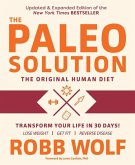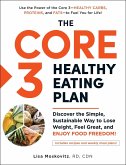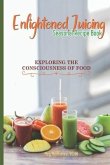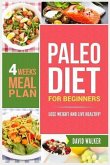The question of what people do when it comes to their health continues to capture the attention of scholars and practitioners across multiple disciplines. This is because the various activities and circumstances that can impact health unfold in complex and indeterminate ways yet have profound consequences for health systems, economies, and individuals' abilities to experience quality of life. Ever expanding options for engaging in healthy activities, including fitness programs, diets, and health-giving products and services, complicate the circumstances in which health or illness unfold. As options expand, the role of conventional health authorities for informing understandings of what constitutes healthy living becomes less clear. Today, health is a highly personalized and individualized construct, challenging health advocates, scientists and scholars' assumptions about the mechanisms and relations that result in health or illness. Knowledge of the relationship between specific food compounds and diseases (e.g. corn and diabetes, and wheat and bowel disease) has permeated public food discourses in North America for nearly a decade. Public attention has recently turned to the relationship between food and disease patterns linked to inflammatory processes in body. Rising rates of diagnosis of auto-immune conditions such as hyper and hypo-thyroidism, rheumatoid arthritis, and fibromyalgia in Westernized and Westernizing countries, warn of additional and complex relationships with food and the body (Lerner, Jeremias & Matthias, 2014). Popular science scholars have also ascribed unmatched levels of immediacy to food-health concerns, particularly in relation to the consequences of mass production, inadequate regulation of food industries, and individual food choices (e.g. Davis, 2014; Pollan, 2007, 2008, 2009). While food has been touted as an obsession in American health culture for some time (e.g. Becker, 1986; Rozin, 1989, 1996), the borderless nature of disease, coupled with a tendency to see weight as a marker of social status, means that Canadians too have an interest in crash diets and quick fixes, along with their neighbours to the south (Ellis, 2013). As public and scientific interest in the health science of diet grows, more information is becoming available that connects what we eat with what is happening in our guts, and many of these new insights are being supported and taken up by entrepreneurs in self-help and diet marketplaces. A common theme among contemporary diet creators and writers today is the question of whether technological advancements in food production have been a blessing or a detriment to population health. In the absence of regulation or government authority, the question, To what extent individuals can and must take control of their own health? is a key concern. One approach that rose to popularity in the late 2000's in North America is the now internationally recognized Paleo Diet. The Paleo Diet consists of daily meal allotments comprised of 19-35% protein from lean meats, 22-40% carbohydrate from fruits and vegetables, and 28-47% fat, including saturated fat from fish, plants and some nuts. The diet recommends the elimination of dairy, grains, legumes, white potatoes, refined sugar and some vegetable oils, mainly those made from corn, soy and canola. Though advocates of the diet assert that these elements may be adjusted to individual needs and tolerances, Paleo is ultimately distinguished by its basis in the theory of evolutionary discordance. This theory posits that human health depends upon consumption of foods that are most consistent with our genetic evolution as pre-agricultural hunter-gatherers (Cordain, 2010; Eaton, Eaton & Konner, 1997; Eaton & Eaton, 2003). Paleo advocates argue that the intensified, industrial production and distribution into the food environment of a limited range of foods,







